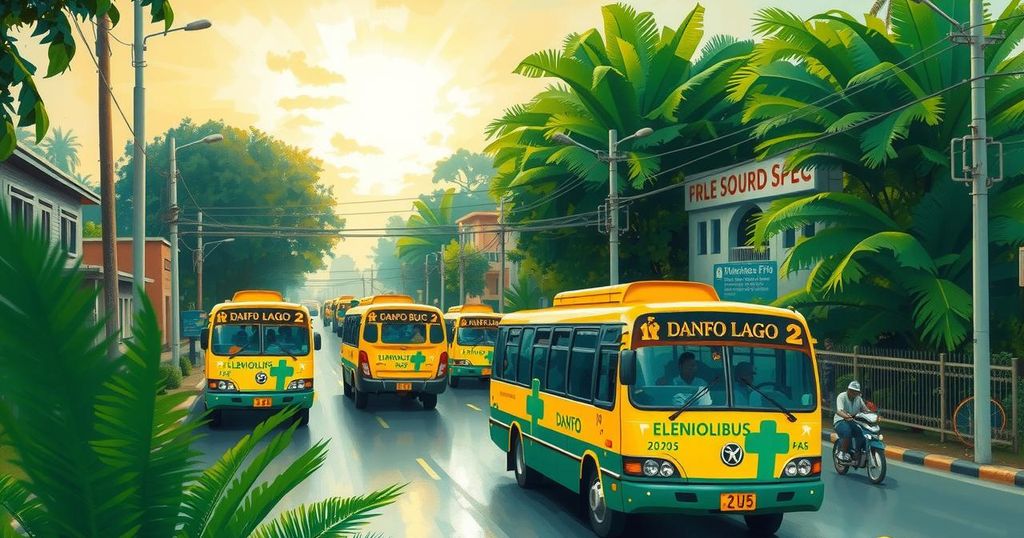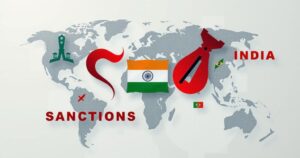‘My Father’s Shadow’: Nigeria’s Debut at Cannes is a Moving Reflection on Lagos Life

Akinola Davies Jr.’s *My Father’s Shadow*, a debut feature that is the first Nigerian film in Cannes, explores a father-son relationship amid Nigeria’s 1993 political turmoil. Set during elections, it captures childhood perspectives in Lagos, intertwining personal narratives with national history, making a compelling statement about familial and societal connections.
In a historic debut, Akinola Davies Jr.’s film My Father’s Shadow has made waves as the first Nigerian film ever showcased at the Cannes Film Festival. Set against the backdrop of June 12, 1993, a pivotal day in Nigerian politics when the country faced turmoil during its first election after military rule, the film stands as a poignant exploration of father-son relationships while capturing the essence of Lagos.
The story centers on two brothers, Akin and Remi. Initially, they seem to be engrossed in the mundanity of life on the outskirts of Lagos, engaging in sibling squabbles and combating the sweltering heat. However, the presence of their father, Folarian—a stern and emotionally distant character portrayed by Sopé Dirisu—transforms their day, as a missing watch leads to an unexpected adventure.
Davies Jr. skillfully employs a lyrical visual style alongside cinematographer Jermaine Edwards. The film draws from the intimate perspective of childhood, reminiscent of works like Raven Jackson’s All Dirt Roads Taste of Salt. The soundscape—filled with nature’s murmurs and the distant chatter of life—creates a vivid fabric for the narrative.
As Folarian reluctantly decides to take his sons into the bustling heart of Lagos, the film takes a deeper plunge into familial bonds and political realities. The boys encounter an avalanche of sights and sounds aboard a danfo, the city’s informal buses, which catapult them from their quiet life into a whirlwind of social dynamics, including discussions about recent tragic events.
Exploration is at the film’s core. The trio meets Folarian’s friends who recount stories from his past, unveiling layers of complexity and emotion. While the film sometimes seems fragmented, the moments shared between the father and his sons capture raw, authentic emotion, providing glimpses of their intimate struggles.
As the day unfolds leisurely, the tension escalates with the impending election results. Davies Jr. injects moments of urgency and somber reality as news about violent unrest and curfews begin to seep into their outing. His editing partner, Omar Guzman Castro, facilitates a seamless transition into these harsher realities, embodying the chaotic political landscape of the time.
The film culminates with chaotic scenes of violence following the cancellation of the election results, conveying a sense of despair for both the nation and the family. Davies Jr. weaves together the fragility of familial relationships with the backdrop of Nigeria’s turbulent history, showcasing his potential as a filmmaker in these final sequences. This combination of personal and political resonates deeply, making My Father’s Shadow a significant arrival in the cinematic landscape, highlighting the nuanced connections between history and intimate family bonds.
Released by Mubi, the film boasts a runtime of 1 hour and 34 minutes and features a remarkable cast, including Sope Dirisu and the Egbo brothers. With its intimate portrayal of everyday life and the echoes of political turmoil in the background, this film leaves an impactful mark in storytelling, especially as it emerges from Nigeria, hopeful for the future of cinema at global platforms like Cannes.
In summary, *My Father’s Shadow* not only marks a significant milestone for Nigerian cinema as its first entry to the Cannes Film Festival, but it also serves as a heartfelt exploration of familial connections set against a backdrop of political unrest. Akinola Davies Jr.’s ability to blend personal narratives with broader societal issues resonates throughout the film, making it a noteworthy debut. This film holds promise for further conversation about Nigeria’s rich storytelling capabilities and emotional depth.
Original Source: www.hollywoodreporter.com







